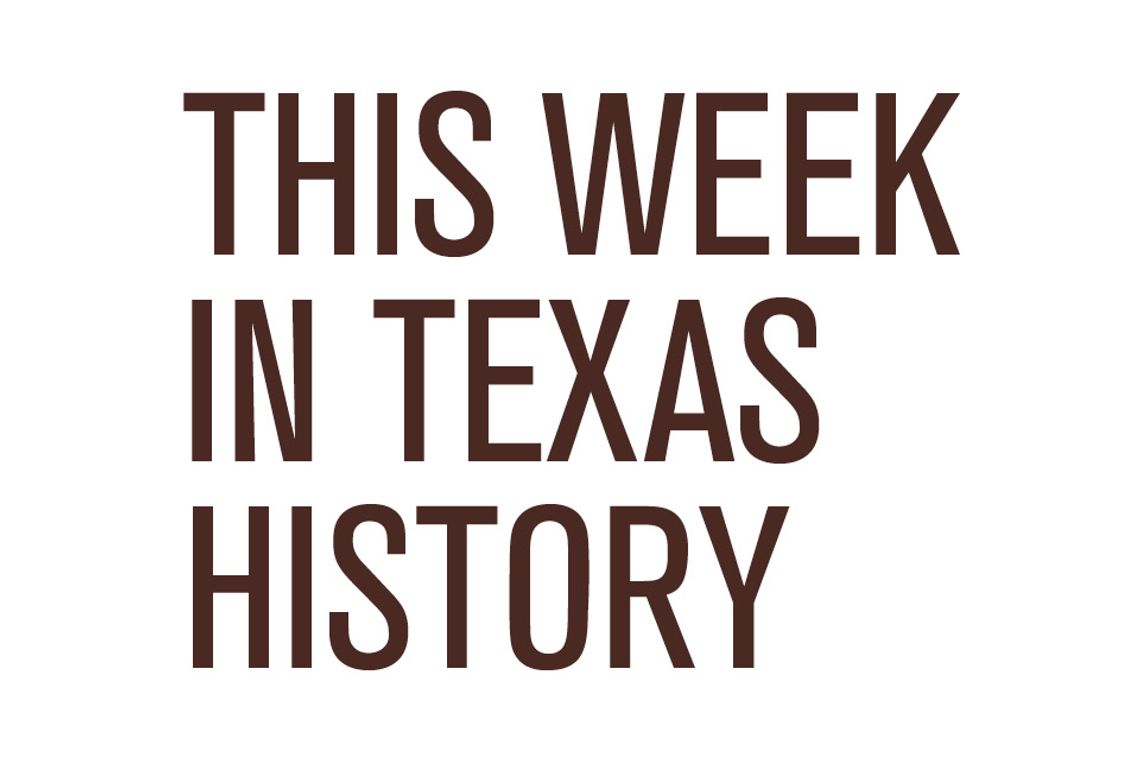As the two men parted on Aug. 25, 1822, Stephen F. Austin asked General Arthur G. Wavell to act on his behalf while in England.
The polite and symbolic request was the young empressario’s way of thanking the Scotsman for his help and hospitality. But the soldier of fortune took the simple gesture to mean the future “Father of Texas” had made him his partner.
Austin went to Mexico City in the summer of 1822 to obtain clear title to his dead father’s land grant. The 28 year old former legislator from Arkansas assumed the visit was strictly a formality since sympathetic officials already had confirmed the legal standing of his claim.
The stranger soon learned the foreign capital functioned at a snail’s pace. The bewildered babe in the bureaucratic woods was getting nowhere fast until an enigmatic European took pity on him.
Compassion was out of character for Gen. Arthur Goodall Wavell, a professional soldier who traveled the world selling his services to the highest bidder. But Austin impressed him, to use the Scot’s own words, as “a man of intellect and energy, and I resolved to render him all the assistance in my power.”
Wavell also made a strong impression on Austin, undoubtedly dazzled by the older man’s thrilling tales of distant battlefields and international intrigue. Though only eight years Austin’s senior, Wavell had fought under four flags including Great Britain, Spain, Chile and newly independent Mexico.
As a brigadier general in the Mexican military, Wavell was in a position to cut through the red tape. In addition to his expert advice and indispensable introductions, the generous general also gave his destitute guest a place to sleep and spending money.
Wavell was sent to England in August 1822 as a special envoy to secure diplomatic recognition of Mexican independence. Before his departure, Austin provided him with the necessary documents to serve as his agent. It was a token of his gratitude as well as an attempt to attract British investment in the colonization of Mexico’s northernmost province.
Wavell did not return for two long years, and by then Austin had established an Anglo-American foothold in Texas. Although the two never again laid eyes on each other, they stayed in touch through a rather one-sided correspondence.
Wavell wrote on a regular basis, while Austin’s replies were few and far between. For the busy empressario, letters were a luxury he rarely could afford.
There was another reason the mercenary’s long-winded monologues went unanswered for months at a time. Austin was perplexed by Wavell’s repeated attempts to take credit for the successful settlement of Texas and his absurd insistence that they were partners.
Failing to pressure Austin into giving him a piece of his action, Wavell applied for a grant of his own. The petition was approved in 1826, and he hired Ben Milam to recruit residents for the sizable strip of land along the Red River.
Nothing ever came of the Wavell Colony. Milam had trouble contacting his elusive boss, whose Mexican employment was terminated in 1833, and eventually dropped the project in favor of the struggle for independence.
When Gen. Wavell checked on the status of his uninhabited grant in 1837, Milam and Austin were dead and Texas was a sovereign nation. The Republic had voided all land grants issued by the previous regime and ignored his pleas for compensation.
Wavell received more bad news in 1841. A survey of the Red River revealed that the eastern end of his grant extended beyond the boundary of Texas, and Arkansas was understandably opposed to parting with any portion of its territory.
After annexation, Wavell decided once again to request restitution for his confiscated land. In his first intelligent move in years, he retained the illustrious Ashbel Smith – former surgeon general of the Texas Army, envoy to England and France and secretary of state – to plead his case.
Smith informed his client in February 1853 that months of persuasive arm-twisting were about to pay off. He predicted the state legislature would pass a bill in the next session that would permit Wavell to seek redress in the Texas courts.
The overly optimistic forecast missed the mark by three long years. However, in October 1856 Smith was able to notify Wavell that the final obstacle to the long-delayed lawsuit had been removed at last.
Ironically, the distinguished Texan never heard another word from the globe-trotting mercenary. Ashbel Smith could only surmise that, after three uneventful decades, Wavell had lost interest in the matter.
The strange silence of Stephen F. Austin’s “silent partner” remains an unsolved mystery of Texas history. Maybe Gen. Wavell, who lived until 1860, realized in the end that Texas did not owe him anything after all.
Get your copy of “Texas Entertainers: Lone Stars in Profile” at the reduced price of $20.00 by mailing a check to Bartee Haile, P.O. Box 130011, Spring, TX 77393.












